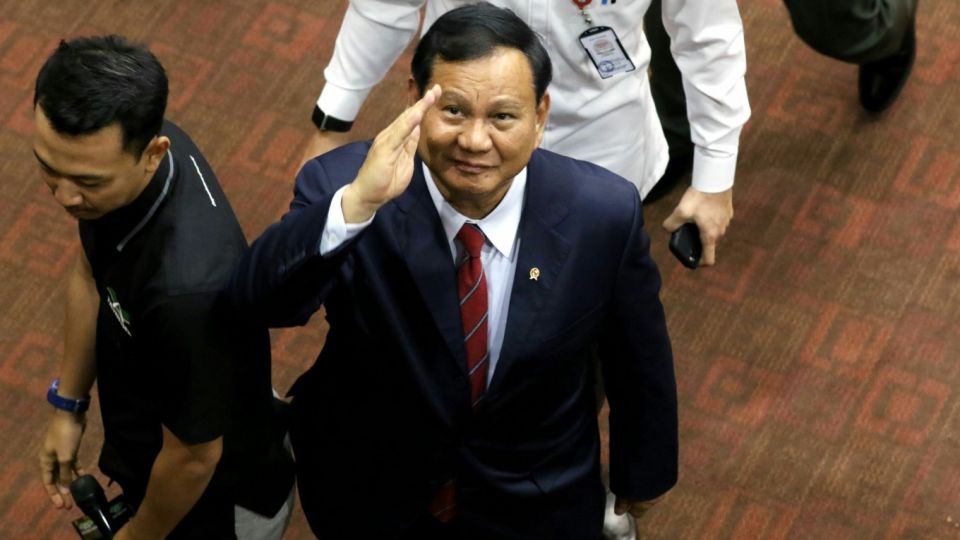August 21, 2024
JAKARTA – Defense Minister Prabowo Subianto has finalized the much-anticipated Defense Cooperation Agreement (DCA) with Australia as he prepares to take office as Indonesia’s next president in October.
The new defense pact, which comes amid continuing geopolitical tensions and heightened concerns over regional security, was “vital” for both nations, Australian Prime Minister Anthony Albanese said after a meeting with Prabowo on Tuesday, as it allowed their forces to operate from each other’s territories.
Prabowo arrived in the Australian capital of Canberra on Monday, following months of preparation for “the most important” hallmark of the two countries’ defense ties, as described previously by Australian Defense Minister Charles Marles. The agreement is expected to be formally signed in the coming days.
The president-elect’s visit to Australia was also to reassert his “good neighborhood policy”, as Indonesia continues to tread a narrow path between rival major powers.
Prabowo later said the visit had “a very good outcome” for Jakarta and Canberra and had reestablished their joint commitment to ensuring regional peace and stability, as tensions related to new minilateral groupings and spats in the South China Sea continue to loom over the Indo-Pacific.
“Australia and Indonesia are working together to shape the region [into one that is] peaceful, stable, prosperous and respectful of sovereignty,” Albanese said. “[The DCA] will be a vital plank for our two countries to support each other’s security.”
Prabowo said he was determined to continue the good neighbor relationship.
“I will continue the general policies of [President Joko “Jokowi” Widodo], in which Australia plays a very important role for us,” he said.
Prabowo’s meeting with Albanese came just four days after a recent upgrade of AUKUS – a security grouping consisting of Australia, the United Kingdom, and the United States – that allows easier sharing of arms as well as an exemption from limits on the export of weapons.
In 2021, Indonesia expressed discomfort over AUKUS’ formation, given the relatively short notice it received from Australia, the country’s closest neighbor, about the security grouping. The alliance also provided for nuclear-powered submarines to enter the region, raising alarms in Jakarta at the time.
However, Indonesia has signaled a softening stance toward AUKUS in recent years and has strengthened its security alliance with Australia. The finalization of the defense pact, for instance, has been dubbed a major milestone of Indonesia-Australia security cooperation.
“The [proximity of the two nations] determines that Australia and Indonesia […] have a shared destiny,” Australian Defense Minister Charles Marles said, as quoted by Reuters.
“From this moment forth, this destiny is very much defined by deep strategic trust,” he continued.
Indonesia, on the other hand, has repeatedly asserted its non-aligned stance in the US and China’s competition for influence in the region, whereas Australia has aligned itself closely with its Anglophone ally.
Prabowo, who has been notably active abroad in the past several months to avow Indonesia’s free and active stance, including through visits to China and Russia, has also insisted that he will continue Jokowi’s “general policies”.
“[This includes] Australia playing a key role in various fields, especially the economy,” Prabowo said. “We want to see increased Australian participation in our economy.”
Rough waters
Geopolitical tensions in the Indo-Pacific have continued to manifest in security incidents involving rival parties, including during Prabowo’s visit.
The South China Sea in particular, among the region’s most strategic yet most disputed waterways, has become the primary regional theater of US-China competition.
Some Southeast Asian countries have stopped trying to remain neutral in the great power competition because of their disputes with Beijing over its sweeping claims to the sea. The Philippines, for example, has aligned itself more closely with the US to defend its claims in the waters.
On Sunday, Chinese and Philippine coast guard vessels collided near the Escoda Shoal in the disputed Spratly Islands, with Beijing accusing Manila’s coast guard of having acted in an “unprofessional and dangerous manner” by allegedly ignoring warnings and intentionally crashing into the Chinese ship.
Indonesia is not a direct claimant to the South China Sea but has nevertheless been affected by the heightened tensions in the waters.
Australia, meanwhile, has strengthened its security alliance with the Philippines in recent months. The two nations signed a deal in February to enhance maritime cooperation and “promote respect for international law”, Albanese said at the time.
During Prabowo’s visit to Canberra, he reasserted Jakarta’s readiness to work with Australia and deepen cooperation in various sectors, including security and the economy, acknowledging the country’s key role in the region.
“We have had our ups and downs,” Prabowo said. “But I think we are very happy today to have several decades of very close cooperation, and I am determined to continue this.”


